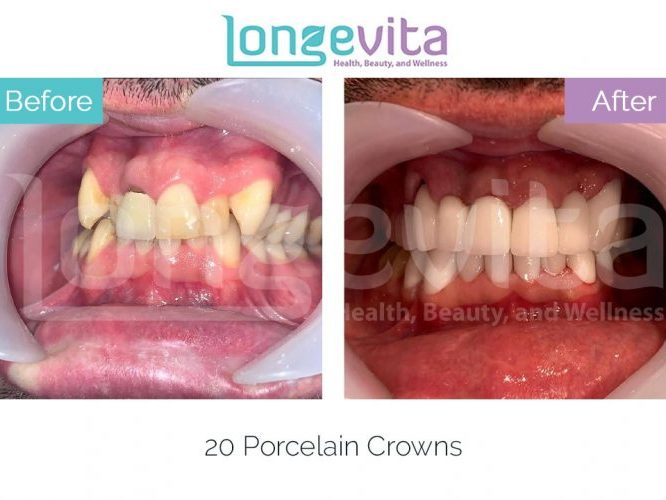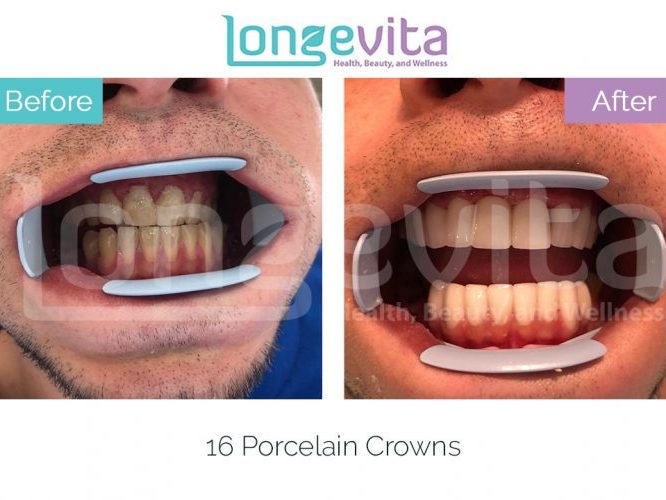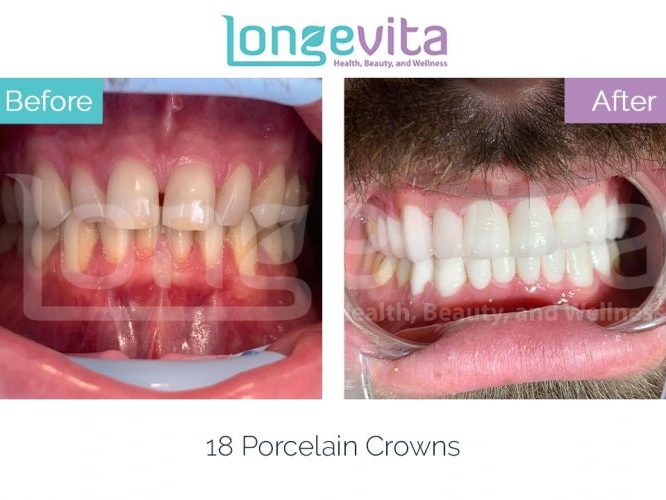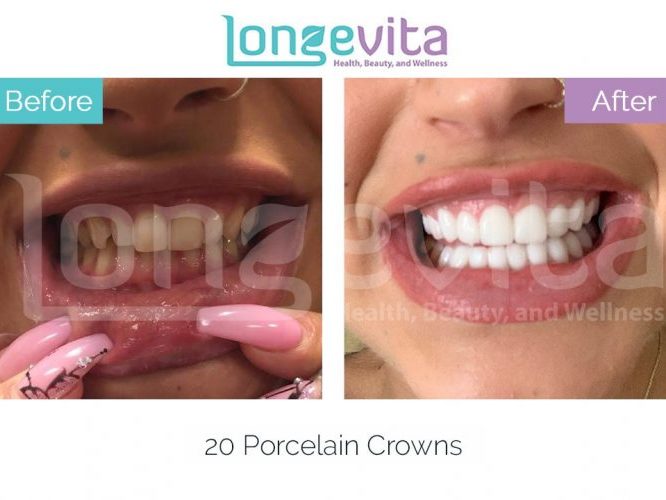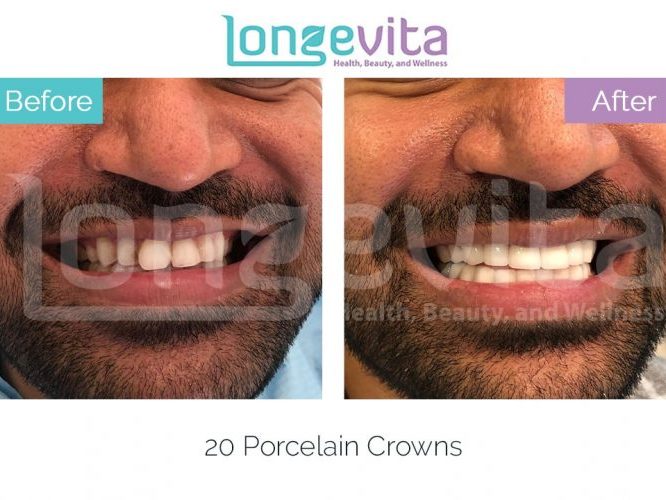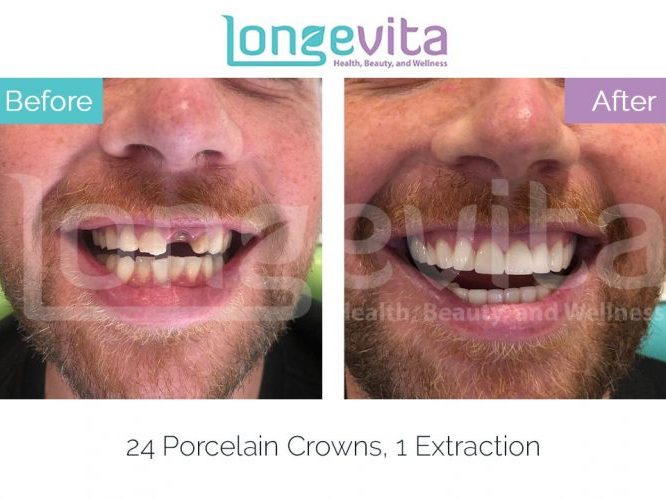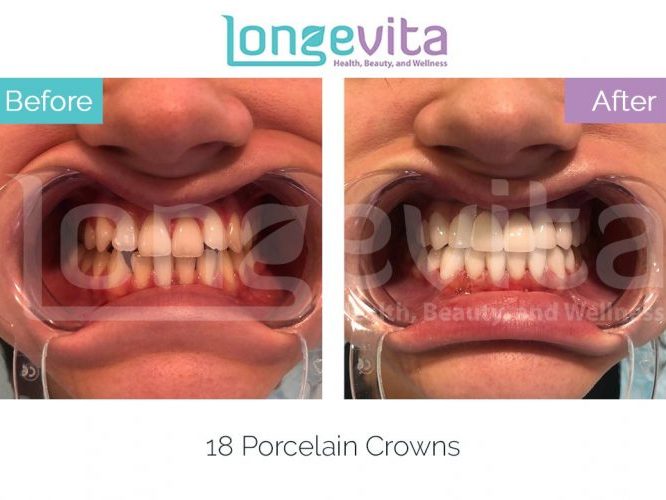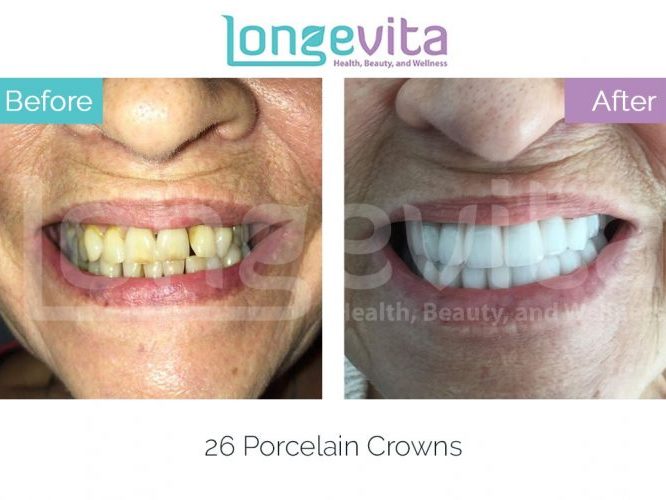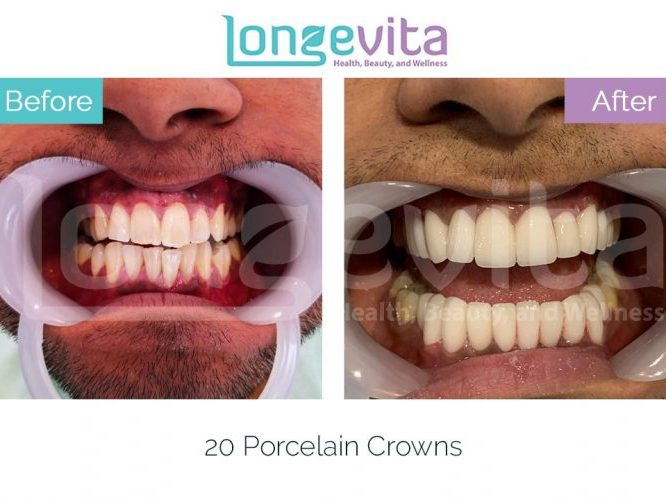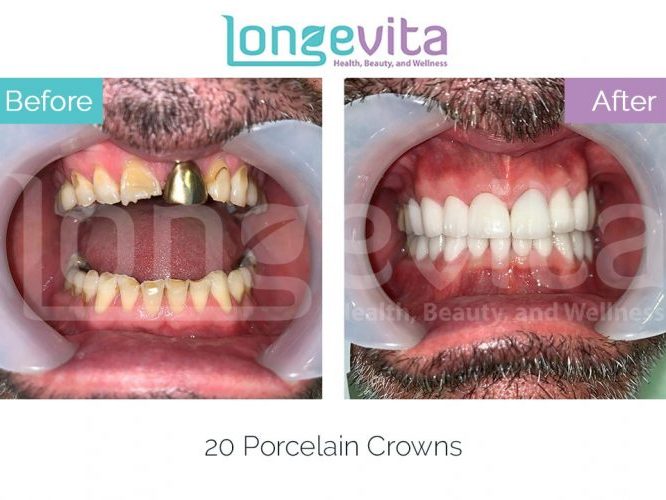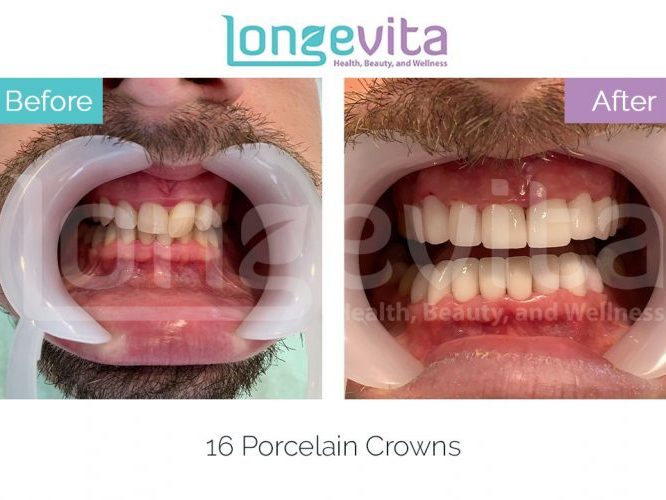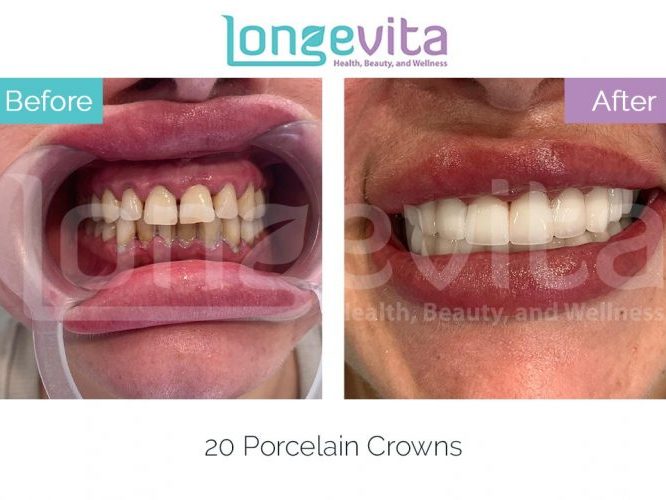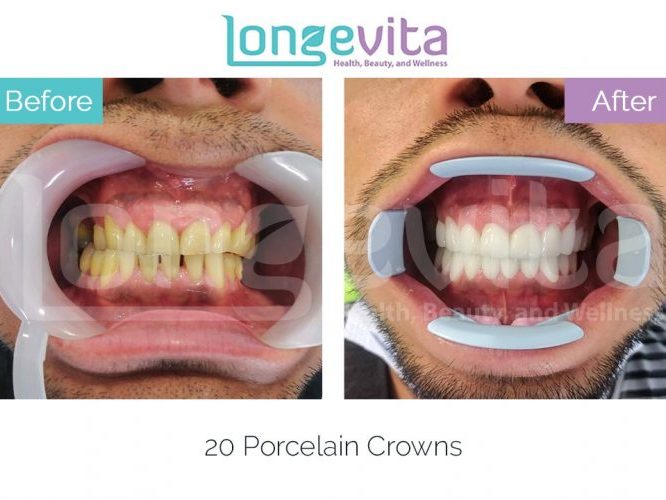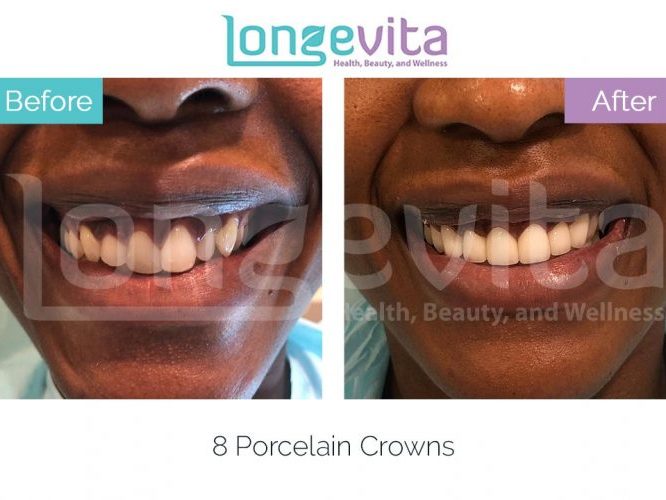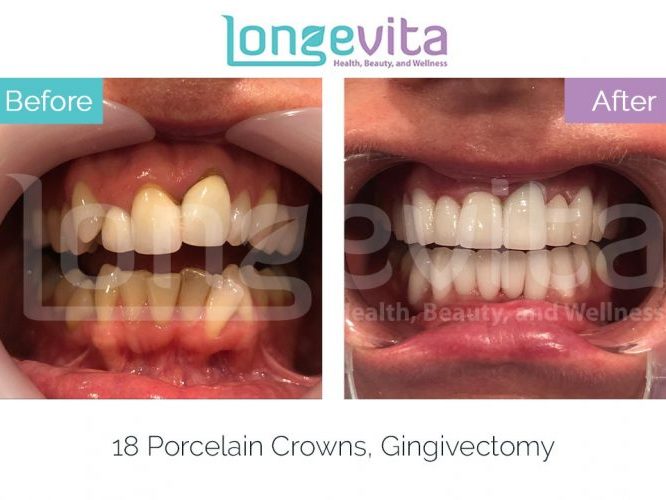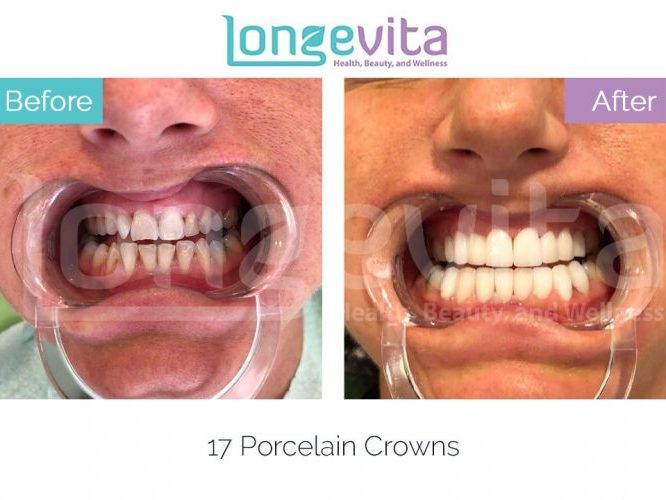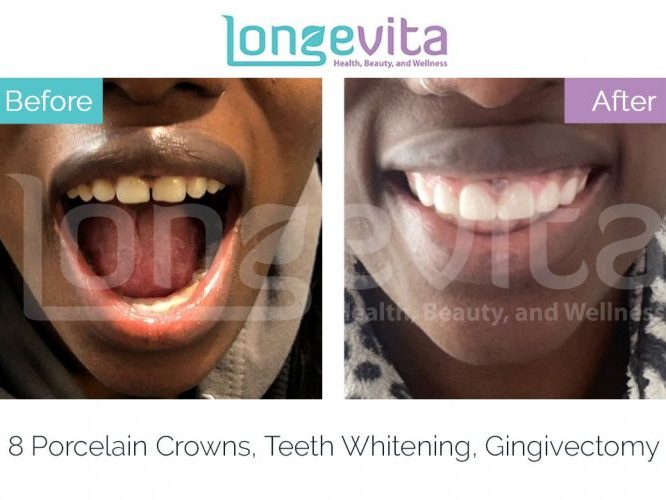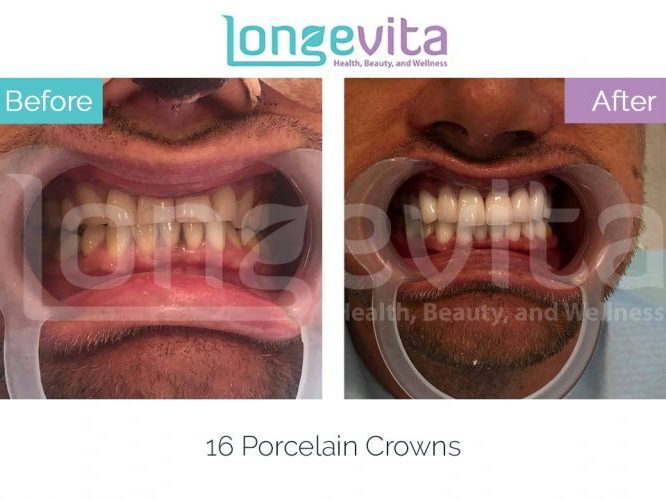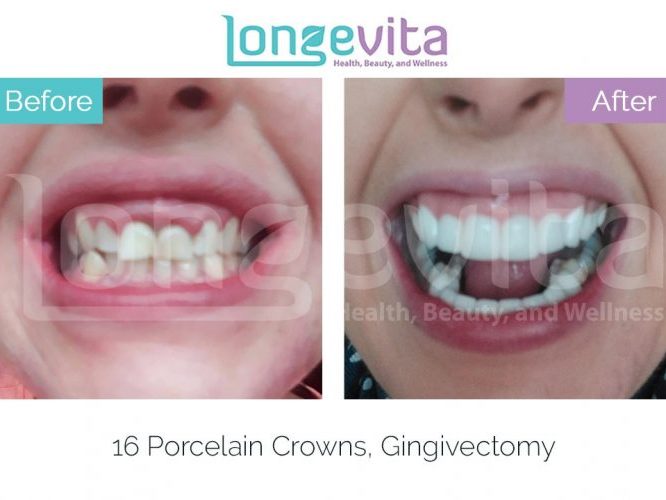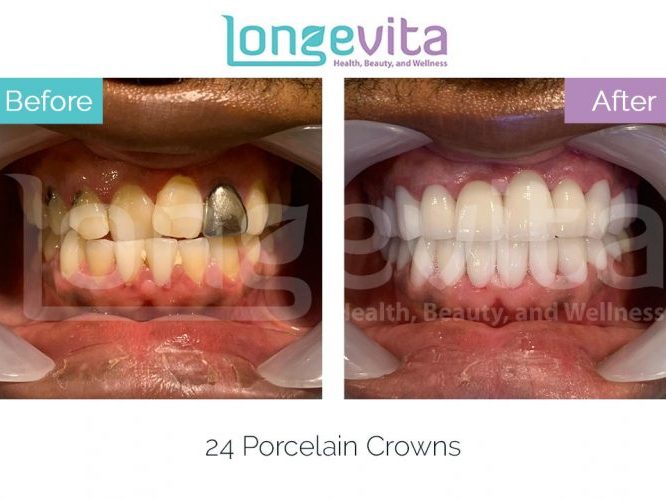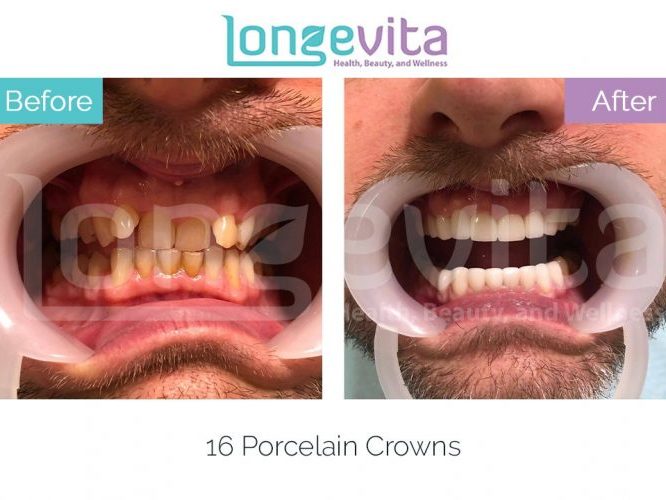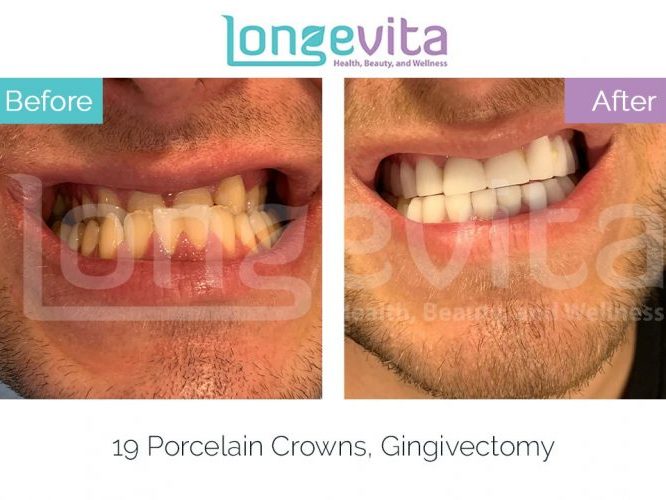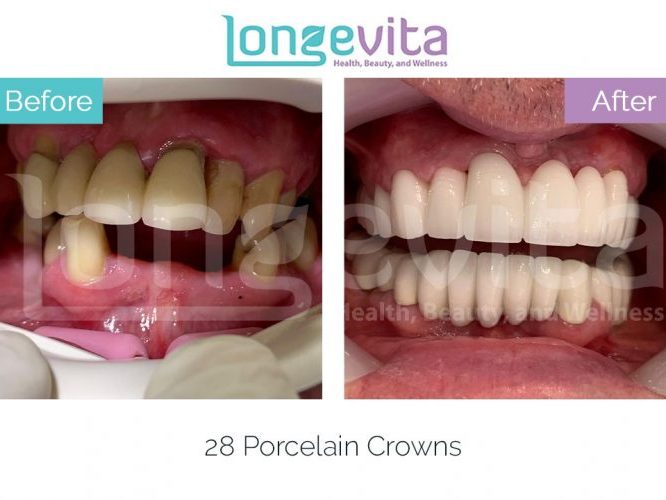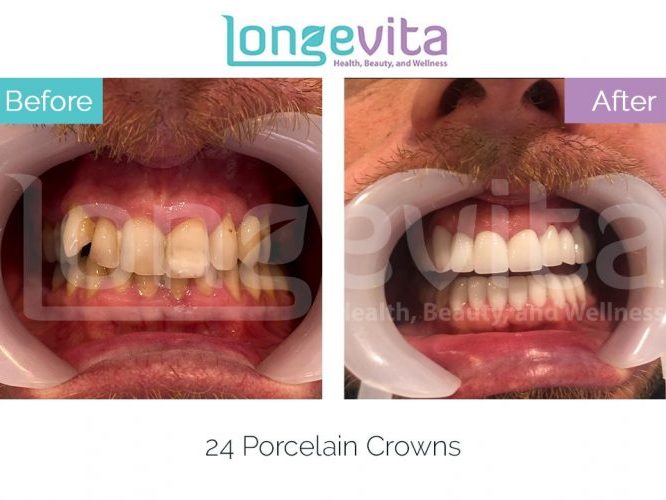Dental crowns can fix decayed, injured, or significantly worn teeth. It does so by changing their shape, size, and appearance, restoring strength and normal functioning.
These are dental “caps” and cover the entirety of the tooth. Since the dentist has to shave down the tooth, the dental crown procedure is irreversible.
What Are Dental Crowns?
Crowns are dental restorations that protect damaged teeth. Depending on your needs, you can get one or several dental crowns in Turkey.
If a tooth’s damaged but needs protection, the dentist can place a single crown on top of the existing one after shaving it. Apart from a single crown, you can also get the following:
Dental Implant Crown
When the tooth’s entirely missing or extracted, the dentist may recommend placing a dental implant – a metal post anchored in the jawbone. A dental implant crown is placed on top of it.
Your dentist can fit the crown on both the upper and lower jaw. These can prevent further degradation of the jawbone, especially if you’re missing many teeth.
Dental Bridges
If one tooth is missing between two teeth, you can get a dental bridge (made of 2-3 crowns) to close the gap.
Dental bridges are either placed on existing teeth or dental implants. These are better than removable dentures because they’re permanent and fixed in place.
In addition, they can successfully readjust the bite and restore your smile. However, it’s not always possible to get only bridges, so your dentist may recommend implants instead.
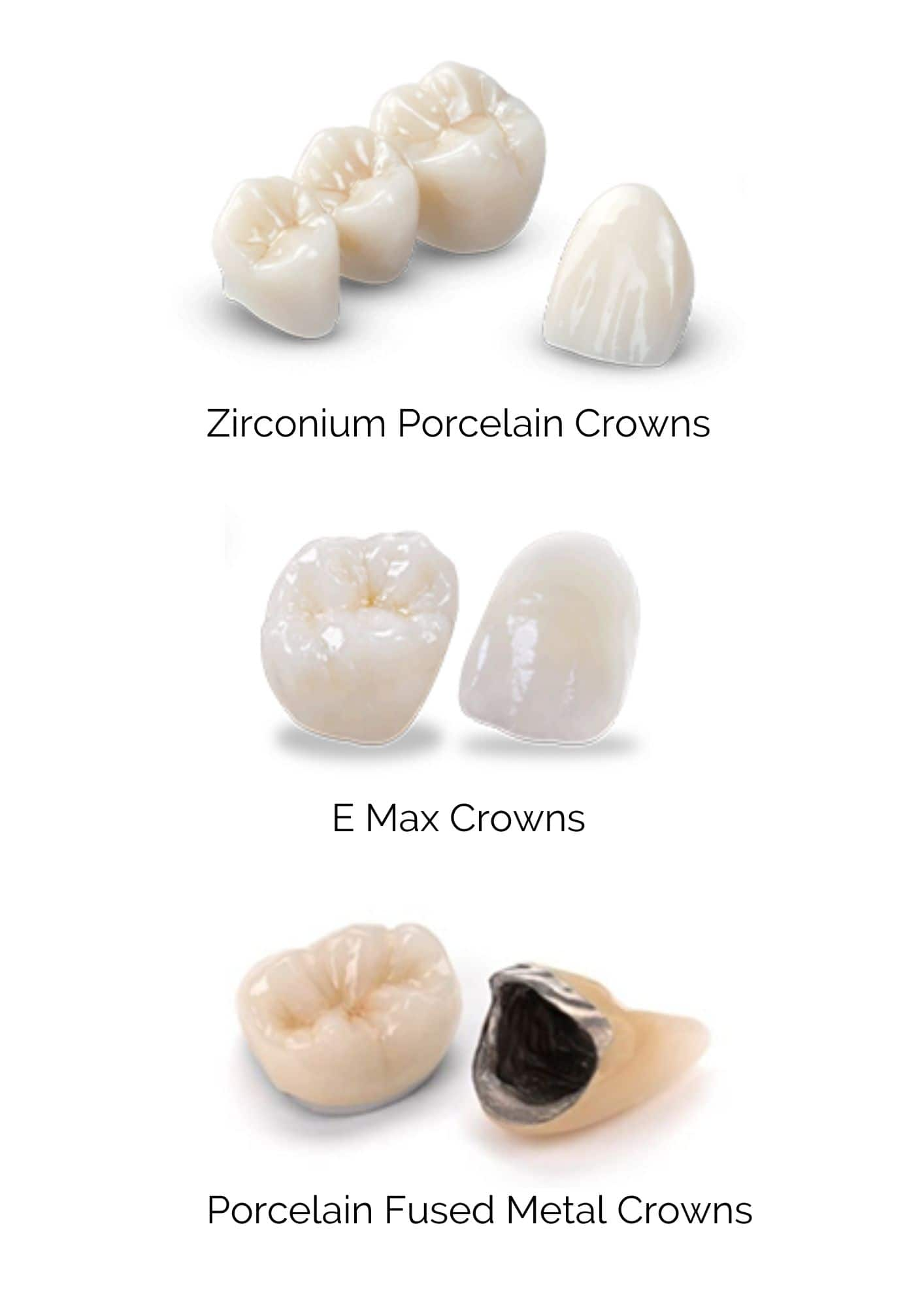
Types of Dental Crowns
There are different types of dental crowns, classified on the basis of the material from which they’re made.
Zirconium Crowns
Made from zirconium dioxide, zirconium crowns have a metal oxide base with a porcelain coating on the outside.
Because of their superior strength and durability, they are best for back teeth. So, once you get your zirconium crowns in Turkey, they’re going to stay with you for a long time.
And since the base of a zirconium crown is white, it won’t give you a dark gum line. So, it’s also quite suitable for the front teeth.
Just like with other crowns, getting zirconium crowns in Istanbul will take around 6-7 days.
E–Max Crowns
E max crowns are made from lithium disilicate glass-ceramic.
These are stronger and more translucent than zirconia crowns. That means that these allow in more light than full metal crowns.
If the patient’s teeth are too yellow, the yellowing can show through them, and it can give the teeth an undesirable hue.
Therefore, an E max crown works best when the teeth aren’t too yellow. But they can replace damaged/missing teeth with natural-looking results.
Porcelain-Fused Metal Crowns
In these, the porcelain is fused on the outer surface of the metal crown.
And this porcelain gives the appearance of natural enamel.
Metal crowns are a better choice when you’re getting dental implants. That’s because metal is more flexible and better covers the implant.
With this, you might have a dark gum line on top/bottom of the crowned tooth because of the metal.
Porcelain Crowns
A pure porcelain crown closely resembles a natural tooth, which is why it’s quite popular.
Since it’s all-porcelain, it offers better aesthetics than a metal-fused crown.
However, without a metal base, it’s not as durable. Therefore, crown porcelain might be better for just the front teeth.
Dental Crown Cost In Turkey
Dental treatment in Turkey is cheaper than in the UK and Europe because of the exchange rate.
The dental crown cost in the UK can be anywhere from £300 to £1,000. In contrast, the dental crown cost in Turkey is usually around £200 per crown.
Still, the cost of a dental crown will depend on the number of crowns you need and their material. Here’s a breakdown of the different types of dental crowns and their cost in Turkey:
- Zirconium Crowns Cost – £200
- Porcelain Crown Cost – £200
- Porcelain Metal Crown Cost – £200
- E-max Crowns Price – £225
And if you’re wondering how much is a dental crown in the UK, here’s the cost of dental crowns in the UK of different dental materials:
- Zirconium Crowns UK Cost – £750
- Porcelain Crown Cost UK – £650
- Porcelain Metal Crown Cost UK – £600
- E-max Crown Price UK – £700
In the UK, in general, zirconium crowns cost the most.
There are other varieties of these materials as well. For instance, you can get zirconium porcelain crowns. In these, the zirconium is coated with porcelain for a more natural look.
The total dental crowns’ cost can further vary depending on the area where you live, the skills of the dentist, and the quality of the crowns. The cost of a dental crown in the UK may even exceed £1,500 in some places.
With that, you must also account for the cost of X-rays, consultations, medications and aftercare in the UK. Unlike in Turkey, these things are not a part of the cost of dental crowns.
In Turkey, you can benefit from high-quality healthcare services due to the low cost of medical infrastructure (equipment, surgical fees). This further drives down the cost for a dental crown.
Moreover, dental clinics in Turkey offer treatment plans that include crowns, anaesthesia, hotel accommodation, transfer services, aftercare, and private hosts. Therefore, dental crown costs are far cheaper in Turkey.
Affordable Dental Crown In Turkey For UK Patients
With our best price guarantee, we offer very affordable dental crowns in Turkey for our UK patients.
Compared to the dental crowns cost in the UK, you can get them for 3-5 times less in Turkey. Additionally, you can conveniently pay for your dental crowns by setting up a flexible payment plan with us.
Keep in mind that low cost does not mean low quality. In fact, the dentists we work with source their dental materials from Germany and the US.
The dental crown price is only cheaper because of the differences in our cost of living and currency exchange rates. Rest assured, you will get the best dental care with us.
Who Can Get Dental Crowns & Why?
You are a good candidate for this dental treatment if:
- Your tooth is fractured, cracked, or severely worn. Crowns can protect weak teeth from further damage.
- You have a malocclusion, which results in a bad bite. Crowns can fix the angles of normal teeth.
- You have significant loss of tooth structure due to decay, gum disease, or injury and cannot get a filling or inlays/onlays.
- You have significantly rotten teeth. If the dentist tries to drill it, it can fracture or break them.
- You had a root canal treatment. Dental crowns protect the weakened structure of the tooth, especially if they’re at the back.
- You have badly stained teeth; crowns can cover the discolouration. Dental crowns are one of the treatments people seek if they’re dissatisfied with their teeth’ colour.
- You had a dental implant to replace missing teeth or want to hold a dental bridge.
- You want to get a smile makeover to improve the aesthetic appearance of your teeth.
Am I Suitable For Dental Crowns?
What To Think About Before Your Crown Dental Treatment?
When finding a dental clinic in Turkey, you need to think about the following things:
- What are the skills and qualifications of the dental surgeon?
- How many dental crown procedures have they performed, and for how many years?
- What kind of dental treatments does the surgeon recommend?
- What material of dental crowns is best suited for you?
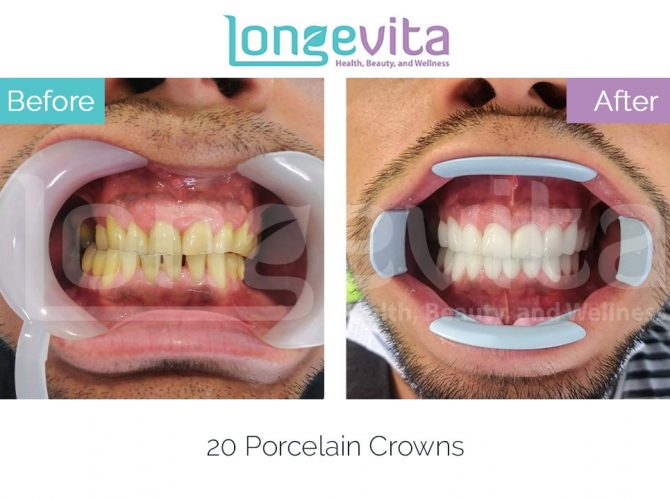
How Best To Prepare For Dental Caps?
When getting crowns in Turkey, make sure that you do the following:
- Inform the dentist about the status of your oral health. Your oral hygiene needs to be good so that you can heal normally.
- Inform the dentist about any medications that you’re taking. Moreover, provide them with your medical history.
- Do not smoke, drink alcohol, or use recreational drugs as they increase the risk of bleeding during surgery and slow down healing.
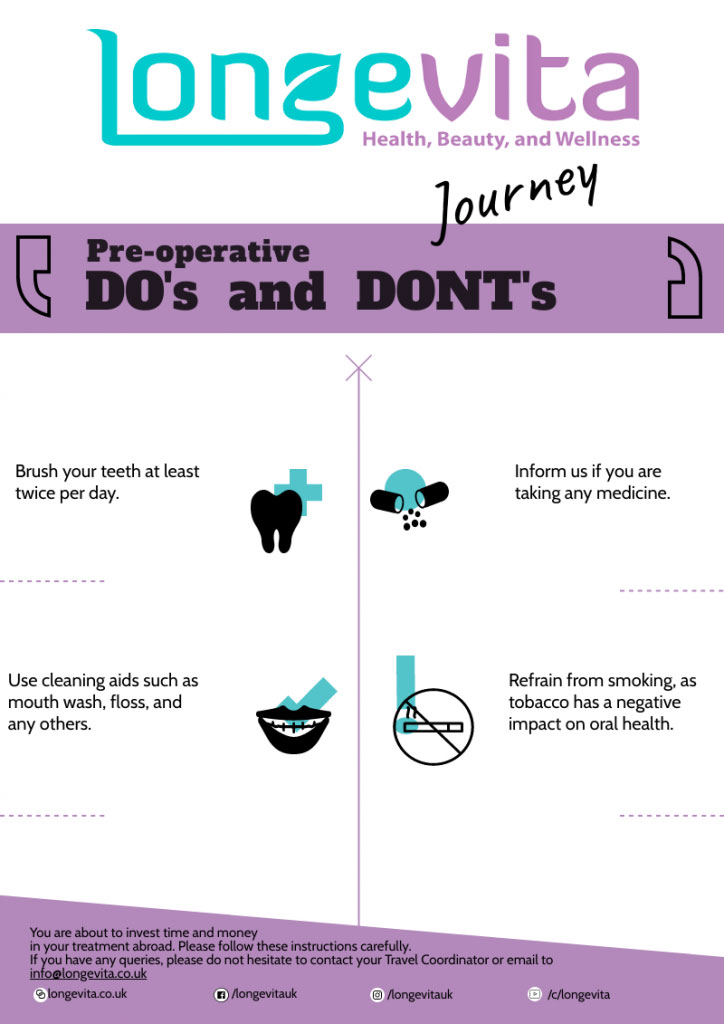
Dental Crowns Procedure In Turkey
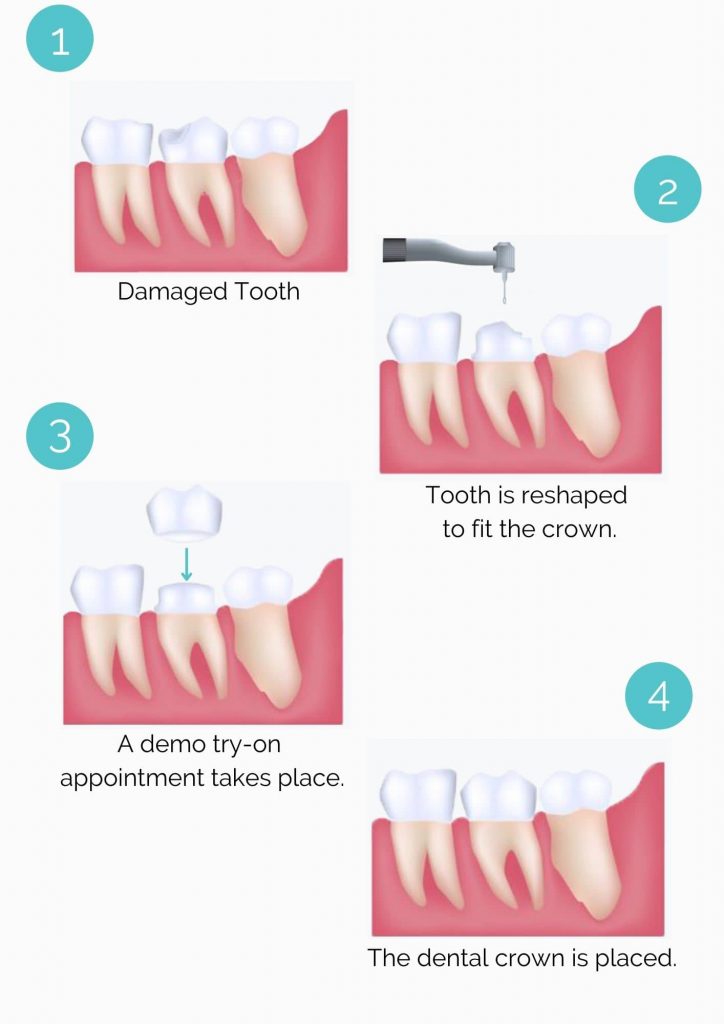
When you arrive at the dental clinic, the dentist will examine your mouth. They may require an X-ray to check your bone structure, gum tissue, and teeth condition.
If you have an infection, damage to the pulp, or decay, you may end up needing a root canal. If that’s not the case, the treatment will proceed normally.
Usually, there are three dental appointments, and you’ll have to stay in Turkey for 7-8 days. The appointments go as follows:
First Dental Appointment
The dentist will prepare your teeth which will get the crown. Using a dental burr, the teeth are filed from the sides and the top.
You’ll end up with tapered teeth to make space for the crowns. How much of the tooth is trimmed depends on the crown material and the condition of the teeth.
Pure metal crowns are thinner than metal porcelain crowns or zirconium crowns, so the dentist doesn’t shave the teeth as much.
If the tooth structure isn’t enough to support a dental crown, the dentist can use a filling to build it up.
After that, the doctor uses dental putty as an impression material. This is sent to the dental laboratory for the preparation of the permanent crowns.
After the completion of the tooth preparation procedure, the dentist may place temporary crowns on top of your teeth so that you can talk and eat comfortably.
The whole dental crown procedure takes place under local anaesthesia and takes 2-3 hours.
Second Dental Appointment
This is a demo try-on appointment and takes place 2 days after the first appointment.
In this, the dentist places the base of the crowns on the patient’s teeth. If these crowns fit well, the dentist sends them to the lab for fusing the porcelain layer on top.
Third Dental Appointment
This takes place 2-3 days after the second appointment. The dentist removes the temporary teeth and etches each prepared tooth with acid to roughen their surface.
Then, using dental crown glue, they cement it on the teeth. After that, the cosmetic dentist will check your bite to see if the crown’s sitting normally.
It can also take place under local anaesthesia and take around 1 hour.
Book A Free Consultation With Our Patient Consultants
We offer free consultations for patients, so you can discuss your individual requirements with our specialists. Book A Free Consultation With Our Patient Consultants Today.
Recovery and Results Of Dental Crowns
It is an outpatient procedure. However, if you were given local anaesthesia, it’s best to have someone accompany you to your hotel. You may feel dizzy.
Make sure to take painkillers, antibiotics, or anti-inflammatory medicines as prescribed by the doctor.
Do not eat anything until the anaesthesia wears off, as you might end up biting your cheek or tongue.
You need to take care of your dental crowns just as you would for your natural teeth.
You should brush and rinse your mouth very gently a few days after the crown’s dental procedure. Also, you should eat soft foods.
Do not use your crowns for a lot of chewing in the first few days. Since you may have tooth sensitivity, it’s best to avoid foods that are too hot or too cold.
The results from this treatment are immediate and can last 10-15 years. You can take a look at them in our dental crowns before and after gallery.
However, this may vary depending on the material of the crowns and your oral hygiene.
Aftercare Of Dental Crowns
After getting a dental crown, you need to do a few things to make sure that the dental restorations last for a long time.
First of all, if you grind or clench your teeth, you should consider wearing a mouthguard.
Avoid biting into hard objects like ice, nuts, or pens. Do not try opening cans or packages using your teeth.
Whether you have dental bridges or single crowns, you need regular dental checkups from your local clinic.
Side Effects to Expect After Getting Dental Crowns
It is normal to experience the following side effects with porcelain crowns:
Numbness: It is because of the local anaesthesia and will take a few hours to go away.
Tooth Sensitivity: It is because of the trimming of the tooth and can last for some time.
Discomfort: Dental bridges or single-tooth crowns will become the new normal for your teeth after some time.
It may feel uneven and “foreign.” Porcelain/zirconium crowns have an adjustment period of 2-4 days.
What Could Go Wrong After Having Dental Caps?
Some things that can go wrong after your smile makeover include:
Falling off the crown: Although it is very rare, it can happen as the crown becomes loose either due to the cement or poor fit.
It’s important that you quickly inform the dentist as it can result in an infection.
Chipping/fracture of the crown: It may happen if you don’t follow the aftercare instructions. Physical trauma or biting into hard foods can do that.
Dental Crowns In Turkey For The UK Patients
As we’re London-based, our UK patients can rest assured that we’ll be there for them after they return home.
If you’re experiencing dental problems after getting your dental crowns in Turkey, you should immediately contact the Aftercare department.
You can also create a ticket through the online Support Portal.
On the website, you can find helpful guides about the aftercare process of dental crowns. You can ask questions from your dentist via the Aftercare Department.
Alternatives to Dental Crowns
Cosmetic dentists may recommend other dental treatments to you, depending on your needs and expectations.
Instead of getting a tooth crown, you can get veneers for cracked teeth, broken teeth, and stained teeth.
If you only need minor changes for an aesthetic smile, the dentist may recommend cosmetic bonding as the best dental treatment for you.
Veneers and dental bonding are much less invasive than dental crowns.
Other Procedures to Have with Dental Crowns In Turkey
A smile makeover may involve more than one cosmetic dentistry treatment. If you’re getting dental crowns in Turkey only on the upper or lower jaw, you can get teeth whitening treatment to ensure a uniform colour.
If your natural tooth is too decayed or broken down, you may need a filling or root canal before getting crowns.
Other than that, you can get dental implants for your missing tooth. You can also combine dental crowns with other surgical and non-surgical cosmetic surgeries like hair transplants or any other plastic surgery.
FAQ
Can I get dental crowns if I have a metal allergy?
E max crowns do not make use of metal, which is why they are best for those who have a metal allergy.
How long will I need to stay abroad before I’m well enough to travel back to the UK?
You can go back to the UK the day after the third (last) appointment. Dentists usually recommend that patients stay for at least 7 days.
What language will the doctors, nurses and other health workers involved in my care use and what language will my medical notes be in?
Everything will be in English, so you will have no problem understanding your notes. Your dedicated translator will also accompany you in your appointments to facilitate communication.
Reviewed and approved by Dr. Izbel Aksit.
